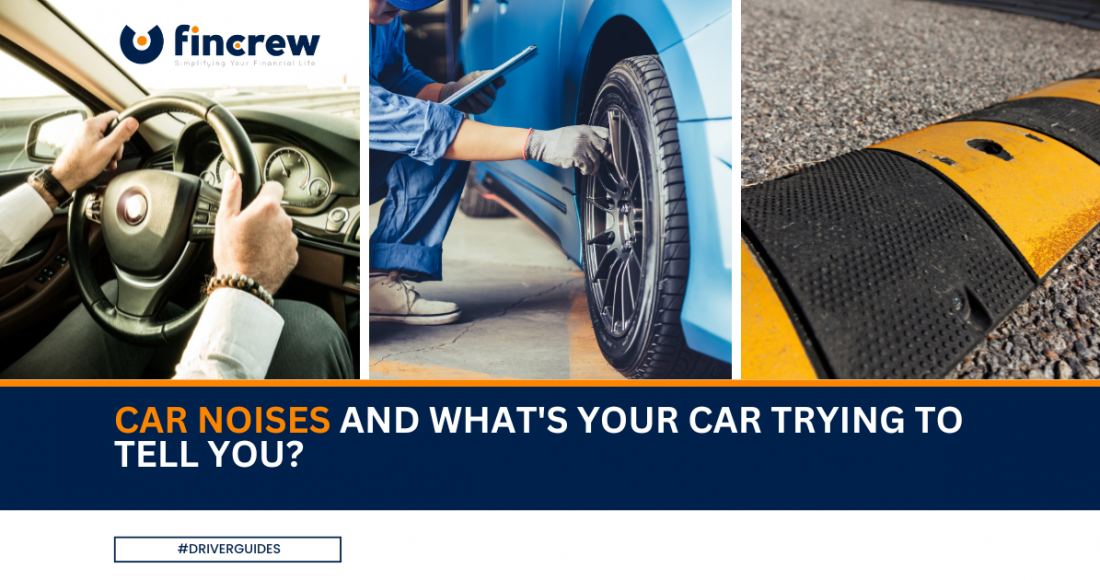We often wonder if our cars speak a language of their own, a language filled with squeals, roars, and bangs. These become background noise to the untrained ear until something out of the ordinary catches our attention. Even then, you might miss those sounds if you don’t know what to listen to. Understanding automotive language can be complex, but it’s essential to listen to your car when it speaks! They often try to let us know something is wrong. Check out these everyday car noises that could signal trouble!
When You Start Your Car, You Hear a Squealing Sound
Upon starting the car, you hear a loud squealing sound that gradually fades away. Whenever you hear a loud, screeching, and squealing noise from the front of your car, it is very likely that your serpentine belt is failing or nearing the end of its useful lifetime.
A serpentine belt is a belt that wraps itself around the pulleys and wheels of the engine. A strap may be attached to the crankshaft of your vehicle and other systems, such as the AC compressor, the alternator, power steering system, and possibly other pumps. As a result, it is an essential part of many of the vehicle’s systems.
Your serpentine belt may make such an unpleasant noise when you start your car for various reasons, but the most common one is wear and tear. As a rubber belt ages and is used more, it becomes brittle, cracking and slipping, creating a shrill sound.
If your vehicle makes such a noise, you should inspect the belt for signs of wear as soon as possible and replace it if needed. Leaving the belt unattended for too long could result in the belt falling from the pulleys, which will cause damage to the systems it carries. You could lose air conditioning, but you could also get stranded along the roadside if this happens.
When Driving Over a Bump, There Is a Rattling Noise
When you drive over a speed bump or pothole, you hear rattling, vibrating, or squeaking noise coming from the wheels.
It could mean that their things are going on with the front end of your car. The suspension system, which includes lots of moving parts, can make a lot of noise, especially if the bushings are bad.
A bushing is a rubber or synthetic component in the suspension system that cushions parts, reduces friction, and prevents vibrations. They can become brittle and break down over time, just like most rubber parts on a vehicle. It is why bad bushings are often the cause when it comes to these types of noise. There is also a possibility that it is a bad sway bar link or worn struts, shocks, or ball joints.
When you’re driving, it can be challenging to identify a sound. That’s why a bounce test at home is practical when the vehicle is stationary. Press firmly on the front corner of the car while it is parked and listen for the sound. It may not tell you exactly which bushing needs to be replaced, but it will tell you that your suspension is the cause of the noise. When your test consistently produces noises, you should visit the mechanic if your car rattles or knocks.
Turning The Steering Wheel Causes Squeaking Or Whining
Your vehicle most likely has power steering if it’s been made within the past 50 years. While some newer vehicles are equipped with electric power steering, hydraulic power steering is the most common type.
Power steering, like all hydraulic systems, requires fluid to function. A low level of this fluid, or a failing pump, can allow air to enter the lines, which causes strange noises. Power steering fluid levels should be double-checked when you are squeaking or whining when you turn or have difficulty making turns. Perhaps the reservoir needs to be topped off, or maybe there is a leak.
A Low Droning Or Humming Sound
A new set of tires should not only give you a smooth ride but should also be relatively quiet. As your tires get older, or if wear is uneven, they can begin to make a droning sound. An underinflated tire can also produce a similarly loud sound.
You inspect your tires as soon as you hear such a sound. The problem might be something as simple as a leak, or you might need some air. Over time, your tires’ tread wears down naturally, but issues with your balance and alignment may cause the print to wear asymmetrically. The repair shop will likely need to be consulted very soon, or you will need to schedule a routine maintenance service.





